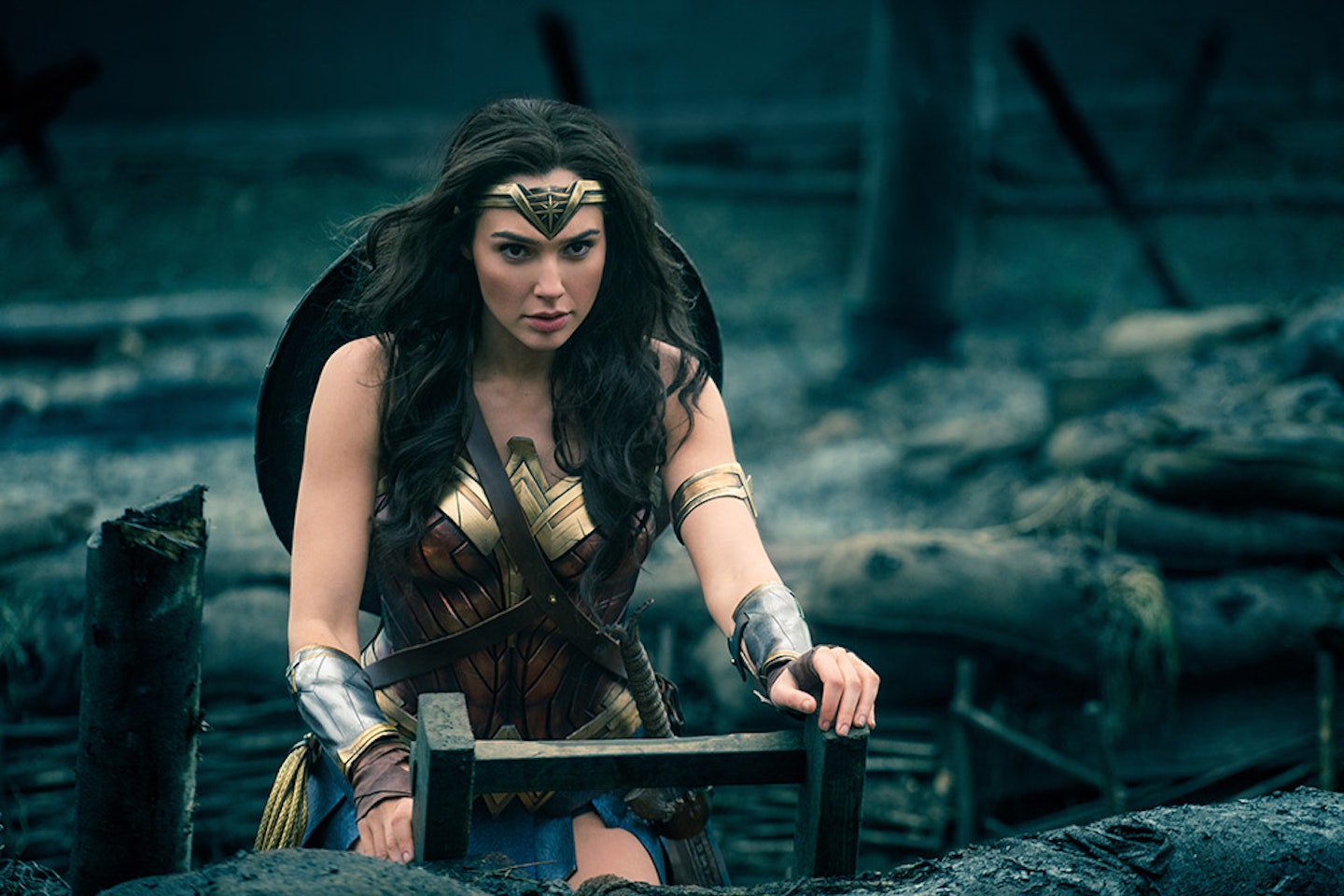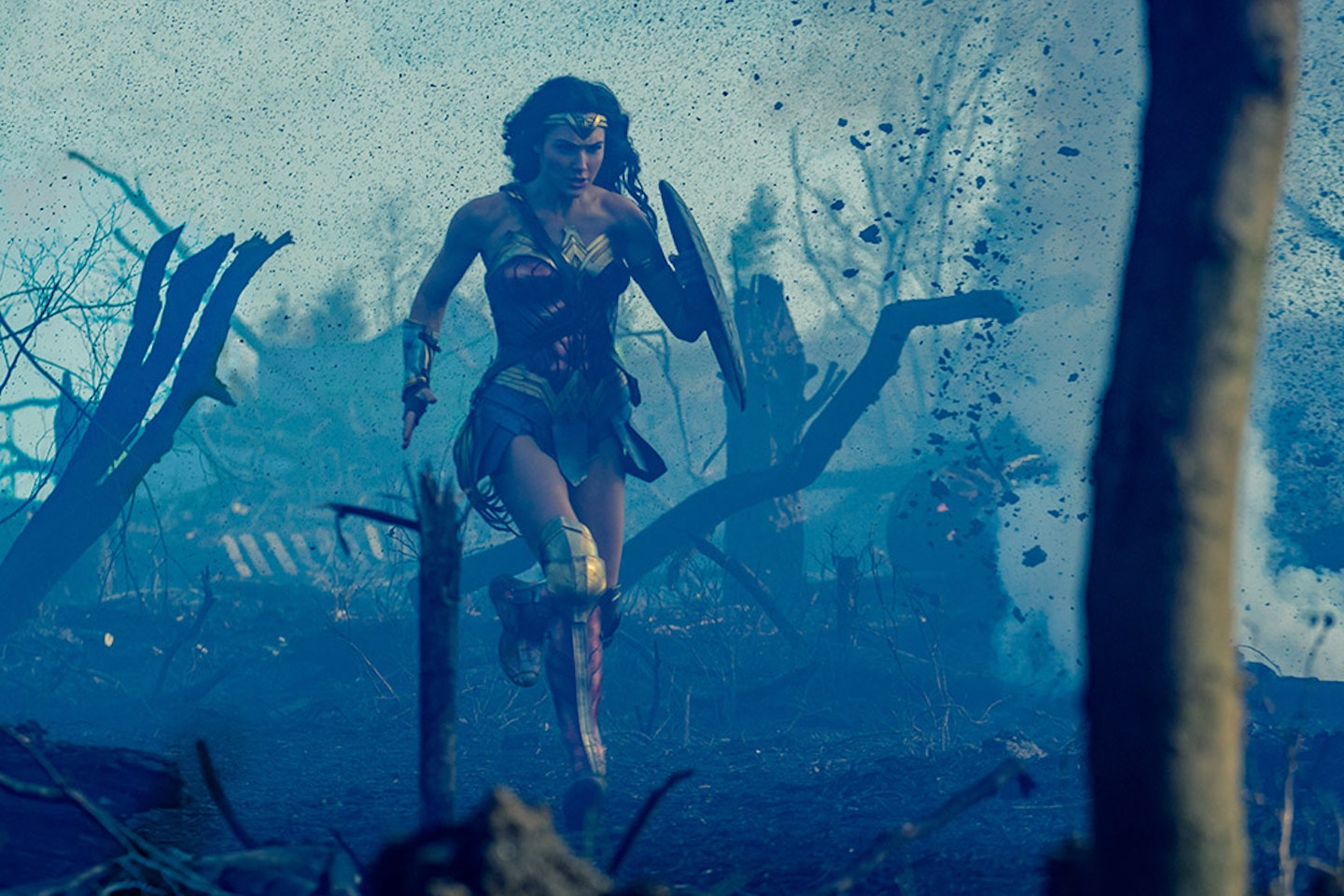We've been holding out for a (super) hero with two X chromosomes for a very long time. Thankfully, the first ever big screen outing for Wonder Woman is, for the most part, joyful, inspiring and full of fist-pump moments (and might just save an ailing franchise in the process...)
In the 76 years since Wonder Woman appeared in her first comic book, there have been more celluloid outings for various Batmen and Supermen than we’d care to count; despite this, the lasso-wielding superheroine has – until now – never managed to headline a standalone film. Pitched as far back as twenty years ago, various versions languished in production hell until this particular screen incarnation, an origins story with Monster director Patty Jenkins at the helm, bucked the trend.
Even once the project received the green light, the fate of superheroines past didn’t augur well: early noughties films like Elektra and Catwoman became by-words for mega-budget flops, and seemed to provide studios with a cast iron case against films headed by female characters. In the past decade, not one female-led superhero film has made it to cinemas. In the same ten years, three different (but oh so similar) white boys have donned Peter Parker’s Spidey suit.
The omens, then, weren’t exactly auspicious for Wonder Woman, starring former beauty queen and soldier Gal Gadot. Granted, her brief appearance as Diana (Wonder Woman’s civilian name) in last year’s Batman Vs. Superman, complete with a thunderous, instantly memorable Hans Zimmer theme played on the electric cello, of all instruments, injected some much-needed energy into the film’s otherwise turgid, entirely joyless 151-minute run time. But as far as back-handed compliments go, being the one good thing in a film that’s unanimously branded as terrible is certainly up there.

Luckily, Wonder Woman cheerily takes its lasso to these highly-stacked odds, resulting in an origins story that sits comfortably within the classic superhero mould but also provides something we rarely see in this genre: a female lead who doesn't bother to play along with boys club rules (how could she, when she's never met a man before our story starts?), doesn't question her own abilities and doesn't mistake meaningless aggression for empowerment. As Wonder Woman's mum, Hippolyta, puts it, 'fighting does not make you a hero. Naive but never infantile, it's Diana's values and intelligence that make her compelling enough to shoulder a lengthy standalone (Wonder Woman clocks in at around two hours, 20 minutes).
The plot might be shrouded in mythology - Diana lives on Themyscira, a matriarchal island that's home to the Amazon warrior women of Greek legend - but it's a relatively simple one that doesn't presuppose an encyclopaedic knowledge of comic books and the like. Raised as a fighter by her kickass aunt (played by House of Cards' Robin Wright), Diana's signature move - crossing her arms like the emoji to unleash a blast from her magic cuffs - comes to good use when fighter pilot Steve Trevor (Chris Pine) crashes onto the island, pursued by the German army. World War One is at a critical juncture; convinced that Ares, god of war is responsible, Diana's sense of justice leads her into the heart of the conflict.
If lofty Greek allusions aren't your thing, worry not. Especially charming is the flipped-around love story that plays out between Diana and Steve, who is - in his own words - 'an above average example of a man' (cue snorts from the cinema's female contingent) but isn't overly concerned with proving it, always prepared to follow Diana's (undeniably superior) lead.

Of course, on-screen female empowerment tends to ring hollow when these tales aren't actually being told by women behind the camera. Patty Jenkins clearly doesn't like being pigeonholed as a 'female director,' but the fact remains that, as a woman directing a big budget tentpole film, she's very much an anomaly. While male directors can pull off a well-received indie hit then be catapulted into the major league (see Lucasfilm's most recent slate of Star Wars spin-off directors), women aren't granted the same luxury - instead, they're expected to clock up an indeterminate amount of 'experience' before being given the reins. Speaking to the Hollywood Reporter this week, Jenkins spoke of her unwillingness to take on 'difficult' high profile projects for fear her failure might damage female chances across the industry. 'If I take this knowing it's going to be trouble and then it looks like it was me, that's going to be a problem. If they do it with a man, it will just be yet another mistake that the studio made. But with me, it's going to look like I dropped the ball and it's going to send a very bad message,' she told the magazine. Let's hope that a successful box office for Wonder Woman translates to better opportunities for female film-makers.
Superheroines are never going to be entirely perfect role models. They're larger than life, not finely nuanced; they come dubiously outfitted and they exist in a world where good and bad only come in a few shades. But by putting a woman front and centre, without objectifying her (despite that outfit), Wonder Woman is certainly a step forward. And if a film makes little girls walk out of the cinema feeling like they can do anything they want to, surely it's something to celebrate.
